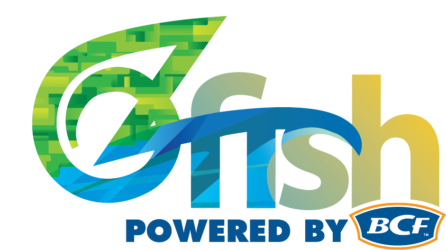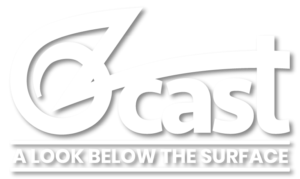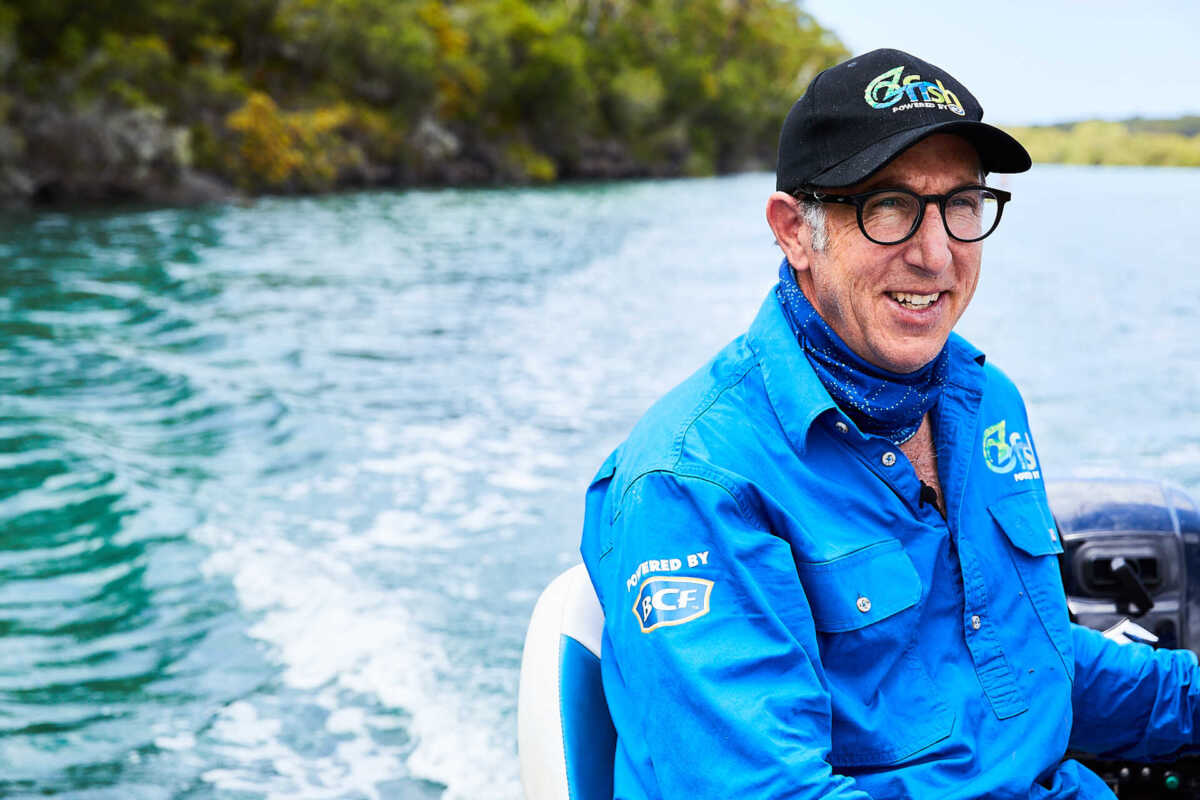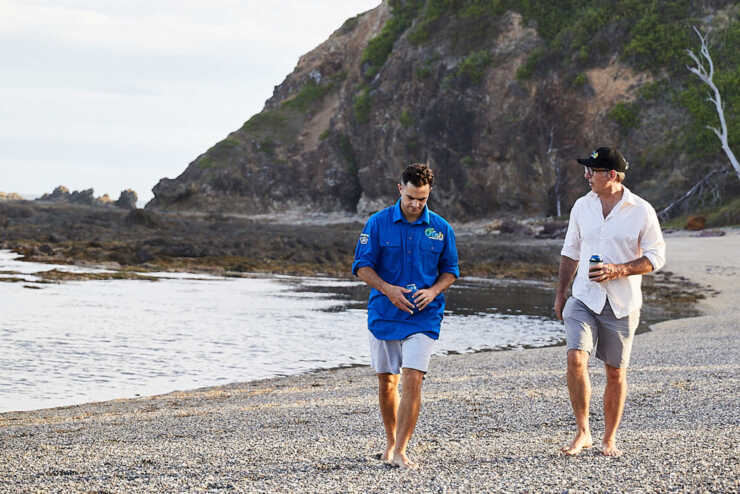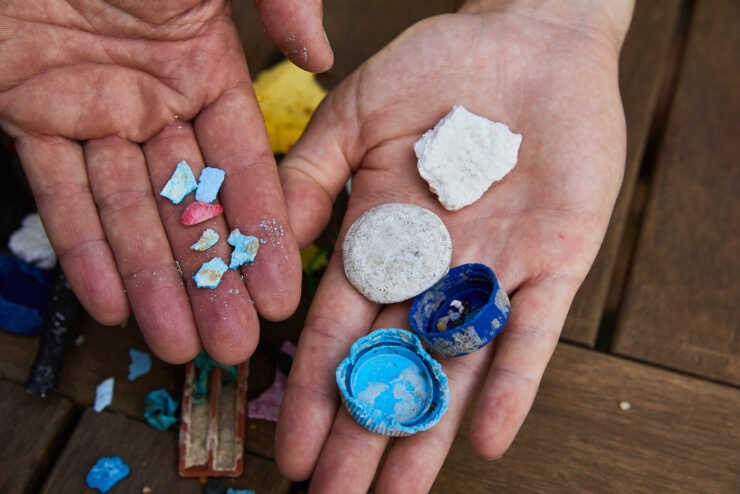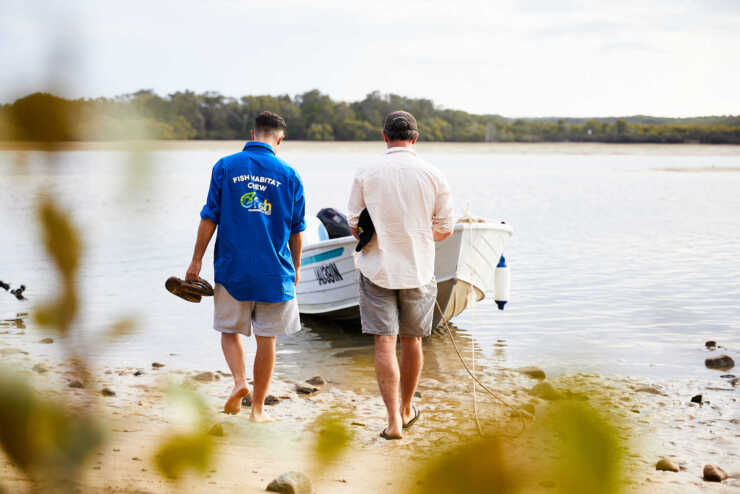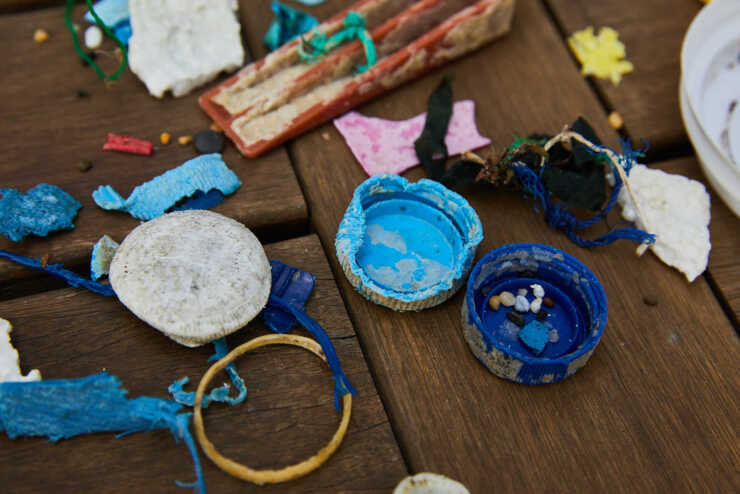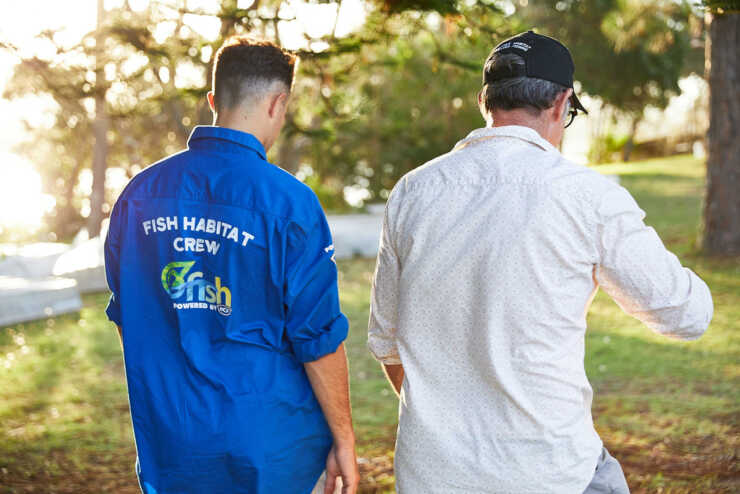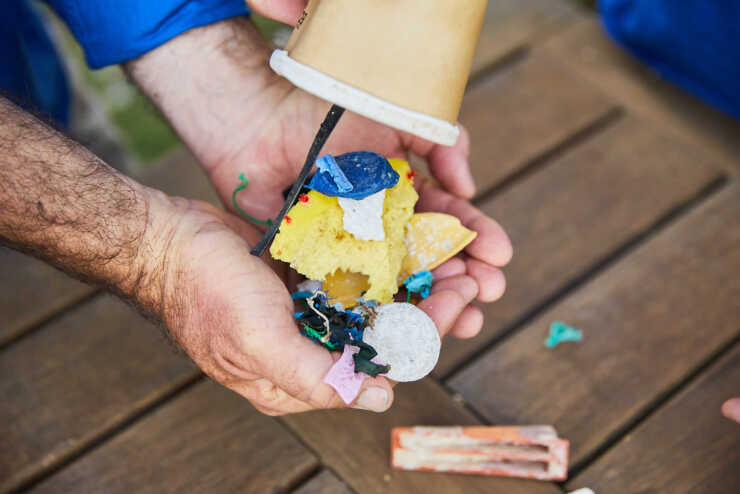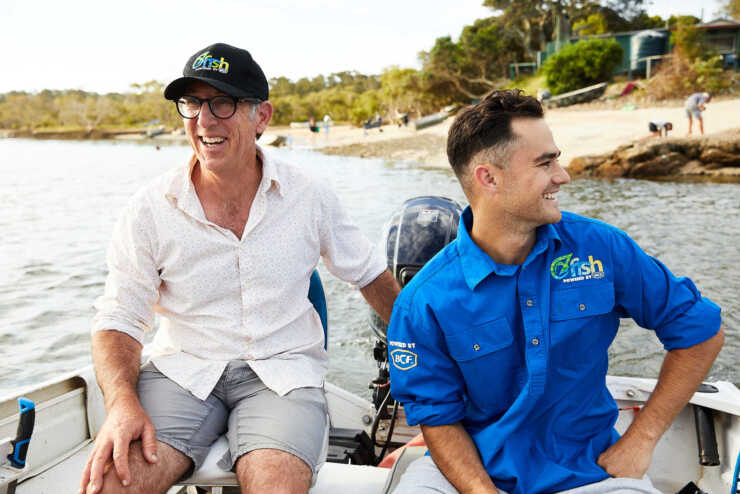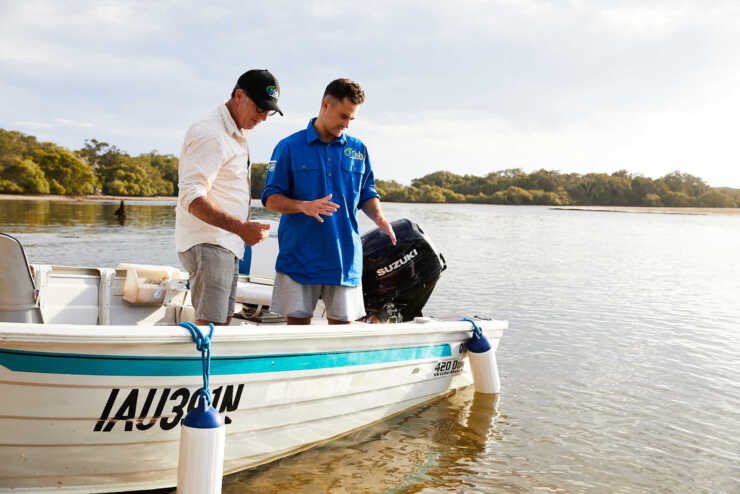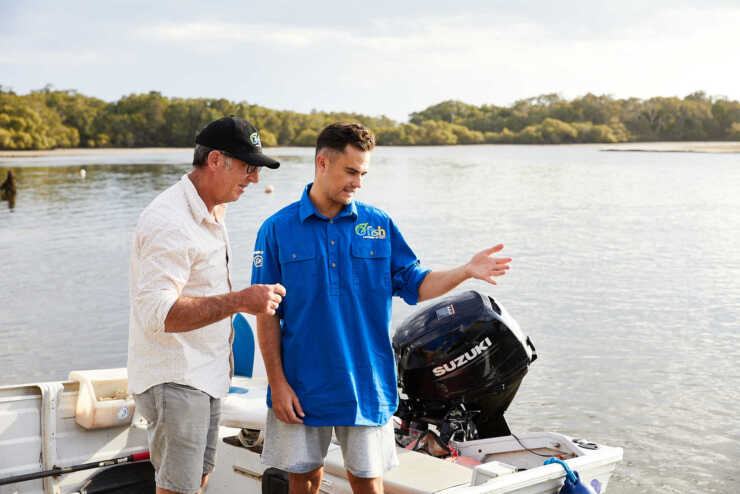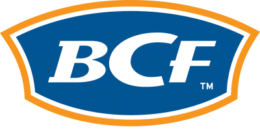This OzCast takes a look below the surface of our litter problem in Australia and chats to internationally recognised veterinary scientist Dr Matt Landos.
Contaminants, like plastic and other chemicals derived from human activities, enter waterways and impact ecosystems. This episode uncovers more to our litter problem than what meets the eye, as the conversations examines the lifecycle of these contaminants, like plastics and how their properties affect behaviours and reproduction of both fish and humans.
Matt breaks down what effect different chemicals can have on living organisms and highlights the way they travel between waterways and across lands without us ever knowing. This is the episode every recreational fisher needs to listen to and it doesn’t take long to find out why.
Dr Matt Landos
Matt is an expert in aquatic contaminants, and how they enter and impact aquatic ecosystems. Matt’s veterinary career commenced in a mixed dairy cattle practice on the mid-north coast in 1995. He transitioned to a full-time focus on aquatic animals working for NSW Fisheries at Wollongbar Agriculture Institute undertaking field investigations, and research, reviewing laboratory submissions and providing biosecurity policy advice. In 2005, he became the founding director of Future Fisheries Veterinary Service Pty Ltd. His business has expanded to provide field, laboratory, research and technical aquatic animal health and production veterinary services to commercial aquaculture and wild fisheries throughout Australia and overseas.
Matt’s work started initially with managing the health and productivity of many aquaculture species including a variety of fish, prawns, and shellfish in hatcheries and grow-out farms. He continues to work across tank-based systems through to earthen ponds and sea cages. This perspective offered him a terrific understanding of how aquatic animals function and reproduce. Today, he is working more and more in the wild fishery, bringing an understanding for how to restore the health and lost productivity of wild and native fisheries.
Matt has also completed projects for the International Pollutant Elimination Network (IPEN) on fisheries and pollution, and worked with the National Toxics Network to seek rational regulatory reform of the Agvet chemical regulatory system.
Matt is an affiliate at Sydney University, Faculty of Veterinary Science, School of Farm Animal Health and Charles Sturt University, School of Animal and Veterinary Sciences where he has contributed to research and training undergraduate veterinarians. Future Fisheries Veterinary Service also contributes to research projects at Southern Cross University, Adelaide University, Queensland University and SARDI Aquatic Sciences. He is a former president of the Australian and New Zealand College of Veterinary Scientists, Aquatic Animal Health Chapter.
Like to watch as well as listen? Check out the video of the podcast below.
This OzCast uncovers:
- What is plastic and how does it carry/distribute chemicals along its travels?
- How do certain chemical compounds in plastics affect the behaviour of fish?
- What happened in the Richmond River Fish kills?
- What was the case with the pilchard’s herpes virus and the white spot virus with prawns?
- How are microplastics transported around the world?
Further reading:
- International Pollutant Elimination Network (IPEN) | An introduction to plastic and toxic chemicals
- United Nations Environment Program | From pollution to solution
- Facing Finance | Dirty Profits – Plastic Profits: Disposable plastics, indispensable planet
- University of Queensland | Research reveals microplastic content levels in seafood
- PHYSIC.ORG | How nanoplastics can influence metabolism
- Society of Environmental Toxicology and Chemistry | Impacts to Larval Fathead Minnows Vary between Preconsumer and Environmental Microplastics
- Science Direct | The occurrence and transport of microplastics: The state of the science
- Frontiers | Developmental and reproductive toxic effects of exposure to microplastics: A review of associated signaling pathways
- Center For International Environmental Law | Plastic & Health: The Hidden Costs of a Plastic Planet
This podcast has been brought to you by our Inland Fishers Tackling Litter Project
It is supported by the NSW Environmental Protection Authority’s ‘Waste Less Recycle More’ initiative funded by the waste levy. Along with other partners, including BCF – Boating, Camping, Fishing, Shimano and the Australian Recreational Fishing Foundation.
